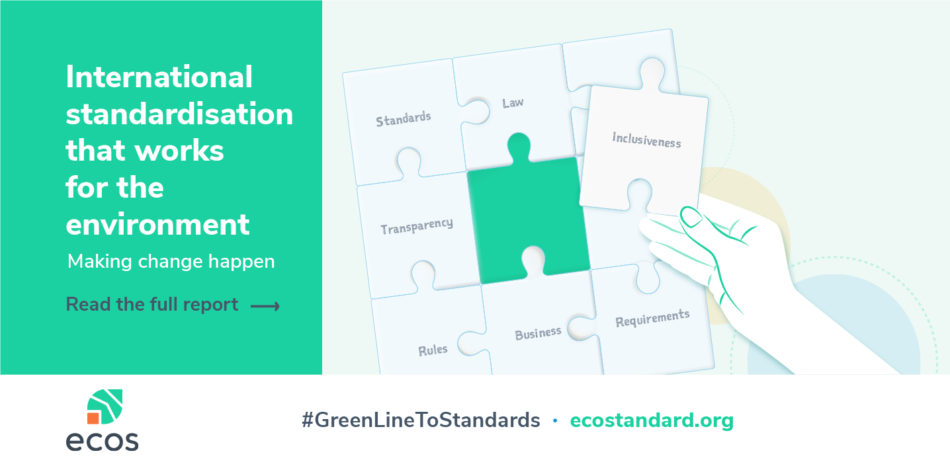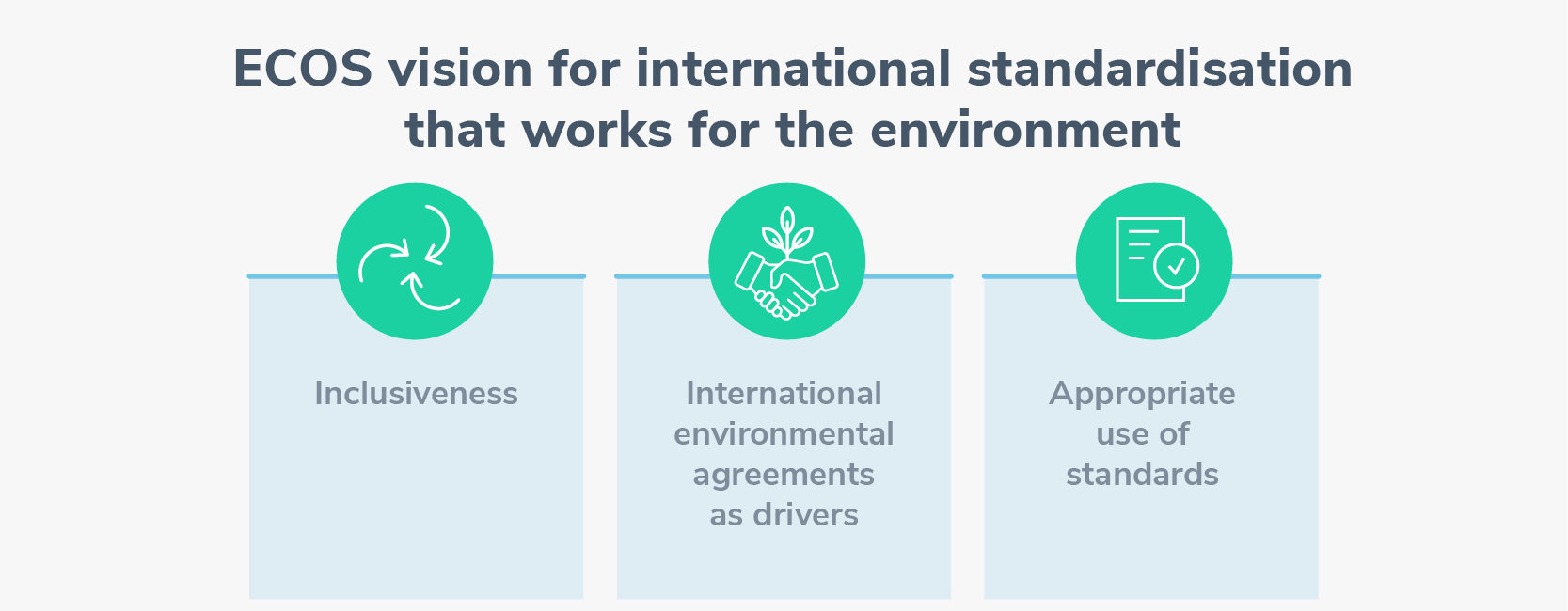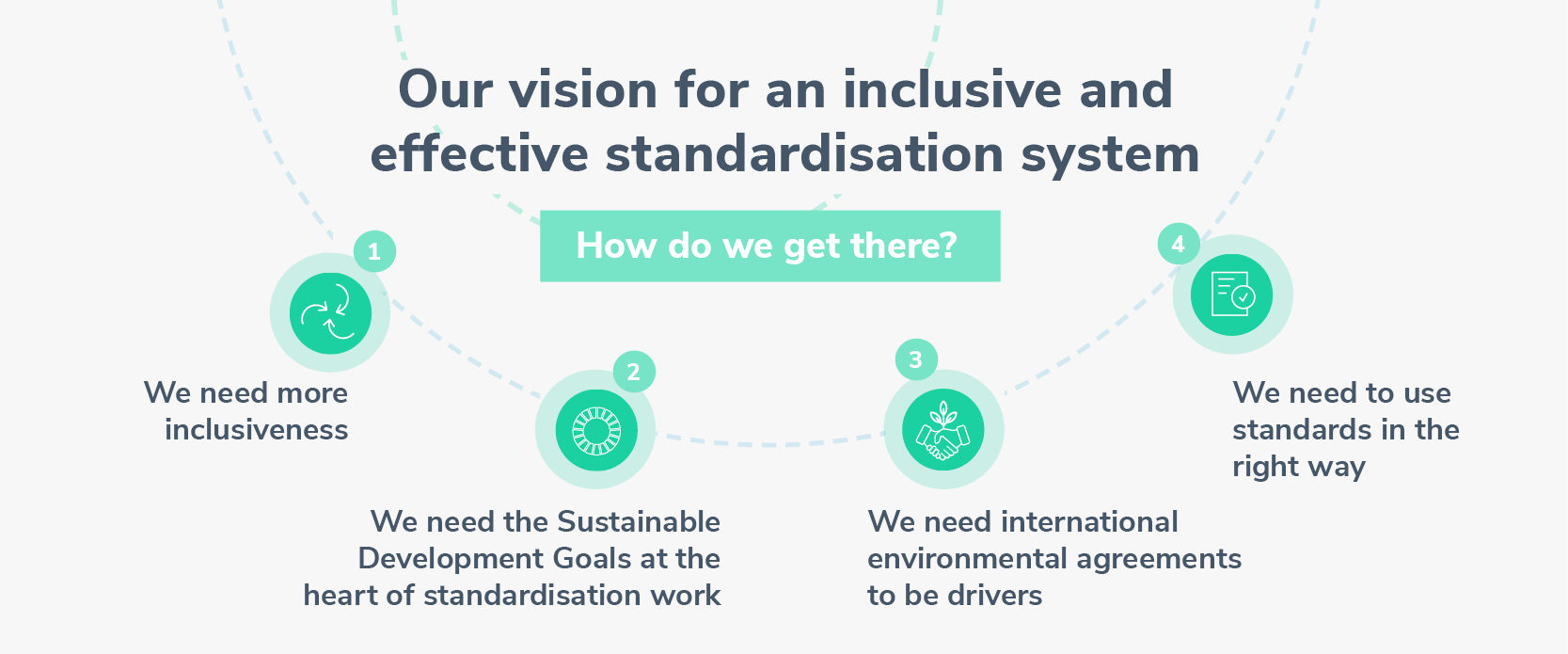New paper! International standardisation that works for the environment – Making change happen
Since 2001 ECOS has been working to ensure an effective participation of environmental NGOs in standardisation, and a more inclusive standardisation system. Our job is, however, still far from done: we strongly believe that the way standards are developed can be significantly improved.

An area that requires particular attention is the degree to which standardisation processes ensure inclusiveness of different types of stakeholders, including those representing the environmental voice.
Over the years, we have witnessed only a handful of successful strategies and actions aimed at making the development of standards more inclusive. Essentially, these are initiatives by Germany at the national level, but also by the European Union, allowing for greater involvement of societal stakeholders in standards making. These much-needed improvements have indeed led to an enhanced participation of underrepresented interests, but, sadly, they have not been sufficiently or systematically transferred to other countries or regions of the world, and are still lacking at both the national and the international level.
Today, addressing global environmental challenges becomes all the more urgent, and standards are playing an increasingly important role in environmental protection, supporting environmental laws, and helping to implement international environmental treaties. While policymakers constantly work to develop state-of-the-art environmental rules, the World Trade Organisation’s (WTO) ‘Principles for the Development of International Standards, Guides and Recommendations’ were agreed as far back as the year 2000 by the organisation’s Technical Barriers to Trade (TBT) Committee. There is a great need to update these principles, taking account of the evolving role of standards, as well as the Aarhus Convention on Access to Information, Public Participation in Decision-making and Access to Justice in Environmental Matters, which clearly establishes the rights of the public to participate in environmental decision-making.
What is needed?
ECOS works towards an inclusive standardisation system, where environmental NGOs from across the globe contribute their expertise to the development
of environmentally ambitious standards in support of the Sustainable Development Goals.

For sustainable products and services to become the norm, international standardisation organisations will need to rise to the challenge, developing standards fit for the 21st century – by not only improving the ambition of standards, but also the way they are developed.
How do we get there?


 By
By  By
By 
